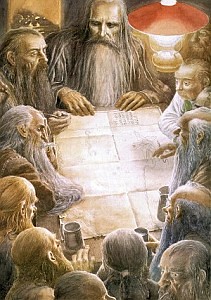Mary Ann Evans, the English novelist who went by the pen name of George Eliot, was born on this day in 1819.
A journalist and translator, Eliot was one of the leading writers of the Victorian Era and “used a male pen name. . .to ensure her works would be taken seriously” and “to escape the stereotype of women only writing lighthearted romances.”
Her 1872 novel, Middlemarch, is considered by some to be “the greatest novel in the English language.”
In celebration of the author’s birthday, here are eight words you might not know she coined or popularized.
chintzy
“The quality of the spotted one is best, but the effect is chintzy and would be unbecoming.”
Chintzy means “decorated with chintz,” but also gaudy, trashy, stingy, or miserly. Eliot’s is the earliest recorded usage of this figurative sense.
Chintz, which is a “cotton cloth printed with flowers or other patterns in different colors,” comes from the Hindi chint, which comes from the Sanskrit chitra-s, “clear, bright.”
More English words that come from Indian languages.
floppy
“The caps she wore would have been pronounced, when off her head, utterly heavy and hideous — for in those days even fashionable caps were large and floppy.”
“Scenes of Clerical Life,” George Eliot’s Works, 1858
As you probably guessed, floppy comes from flop, an old word dating from 1600 as a variant of flap, which is probably imitative. Floppy disk is from about 1974.
horribile dictu
“In some circles the effort is, who shall make the best puns, (horribile dictu!) or the best charades.”
The Writings of George Eliot, 1854
Horrible dictu translates from Latin as “horrible to relate” and is analogous with mirabile dictu, “wonderful to relate.”
lampshade
“I have bought the Lucifers and done my duty about the Lamp shade, but to get one it will be necessary to send the old one as a pattern.”
Selections from George Eliot’s Letters, 1850
The next time put a lampshade on your head to party, you can thank George Eliot for coining the word, or at least having the earliest recorded usage.
Lampshading or lampshade hanging is dealing with an element of a story that threatens the audience’s suspension of disbelief “by calling attention to it and simply moving on.”
The Lucifers in the quote, by the way, refer to a brand name of matches.
lunch-time
“But after this week I shall be most glad if you and Dr Congreve will come and see us just as and when you would find the least inconvenience in doing so — either at lunch-time (half past one) or at a later hour.”
Life of George Eliot: As Related in Her Letters and Journals, 1859
The word lunch came from the word luncheon in the early 1800s, says the Oxford English Dictionary. Around 1931, lunch began to surpass supper as the word for a noontime meal. Lunchtime, while used by Eliot in the mid-1850s, didn’t really start to gain popularity until after 1960.
pop
“But there is too much ‘Pop.’ for the thorough enjoyment of chamber music they give.”
Life of George Eliot: As Related in Her Letters and Journals, 1862
Michael Jackson would be nothing without George Eliot — or at least he would need a different moniker. Eliot’s usage is the earliest recorded one of pop meaning to popular music. Pop is also a count noun, says the OED, referring to “a popular song or piece of music.”
self-criticism
“The self-criticism which prompted the suppression of the dedication did not, however, lead him to improve either the rhyme or the reason of the unfortunate couplet.”
“Worldliness and Other Worldliness: The Poet Young,” The Essays of George Eliot, 1857
In the early 1930s, self-criticism gained the added meaning of “criticism undertaken publicly by oneself of one’s actions, attitudes, or policies, considered as a duty in order to ensure conformity with communist party doctrine.”
Siberia
“Probably this projected transportation may be to a Cape of Good Hope instead of a Siberia.”
Letters, 1841
Eliot’s is the earliest recorded usage of Siberia to mean, figuratively, “a remote undesirable locale.” This area of central and eastern Russia had been “used as a place of exile for political prisoners since the early 17th century.” In the early 1890s, construction of the Trans-Siberian Railroad began, and “from 1801 to 1914, an estimated seven million settlers moved from European Russia to Siberia.”
The population and settlement continued to expand through the twentieth century although “in the early decades of the Soviet Union (especially the 1930s and 1940s), the earlier katorga system of penal labour camps was replaced by a new one that was controlled by the GULAG state agency.” Many of these camps and prisons were in Siberia.
[Photo: “Chintz,” CC BY 2.0 by CycloKitty]
[Photo: “lightheaded,” CC BY 2.0 by Peter Castleton]
[Photo: “Siberia,” CC BY 2.0 by Giuseppe Tescione]

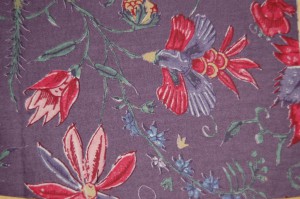
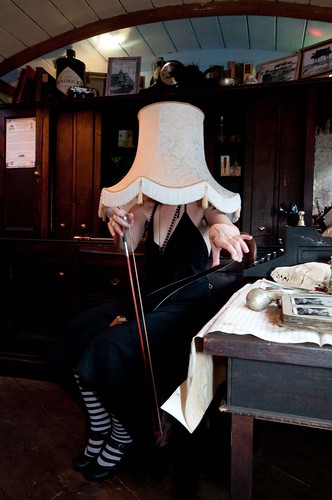

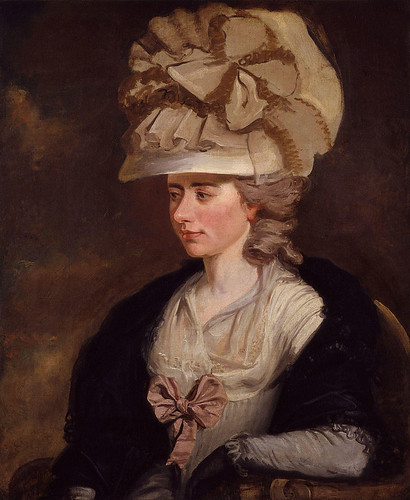
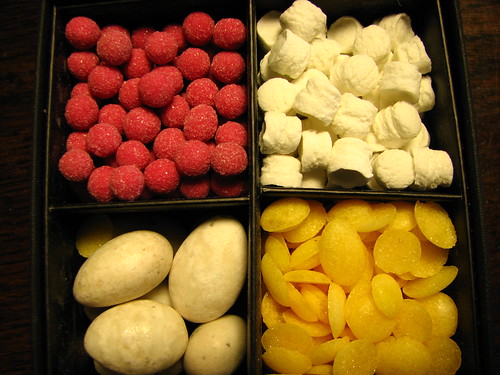



![[ T ] John Tenniel - Alice Through the Looking-Glass (1871)](http://farm6.staticflickr.com/5212/5485576189_14061e9d8b.jpg)

